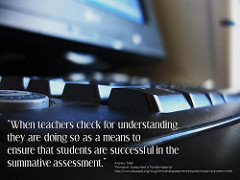School of Mathematical Sciences UG Student Handbook 2024/25
Writing and Assessment

Exercises
For most of our modules, we set exercises approximately once a week or fortnightly (depending on the module) to illuminate the previous week's teaching. You must attempt these exercises in your own time, write out neat solutions and hand them in if required; the module organiser will tell you, usually in a lecture early in the semester. (We also refer to these exercises as "coursework".) Doing the exercises for each module is compulsory.
Depending on the module, we may:
- "correct" or write comments on some exercises to provide you with feedback to help you learn;
- not look at any of the exercises.
We will provide "model solutions" in QMplus (and possibly also in other ways) to any exercises that count towards your final mark, which you should use to learn how the module organiser would solve the problems. If your solution is different then it may still be correct, although the model solution may be better (e.g. more elegant, more succinct or more sophisticated). Some module organisers will go through common mistakes in tutorials to provide more in-depth feedback.
There are normally weekly exercise classes in which you can get help, although higher-level modules may not have exercise classes.
Feedback on weekly/fortnightly courseworks will be provided after one week usually on the module QMplus page or during tutorials/exercise classes.
Further writing support can be found on the following links below:
http://www.library.qmul.ac.uk/subject-guides/
http://www.learningdevelopment.qmul.ac.uk/
Assessments
The main types of assessment that you will encounter as Mathematical Sciences students are:
- tests;
- courseworks;
- written examinations;
- project reports and presentations;
- computer tests;
- practical assessments.
Tests are short examinations held during the semester, usually near the middle. Tests normally contribute a small weighting to the overall mark for a module.
Courseworks are short assessments held throughout the semester and usually submitted on a fortnightly basis. Courseworks normally contribute a small weighting to the overall mark for a module.
Final written examinations take place during the main and late summer examination periods and normally contribute a larger weighting to the overall mark for a module.
Resits for Mathematical Sciences modules are typically assessed by synoptic reassessment. This means that the resit mark is based purely on the resit examination, and takes no account of any coursework marks or in-semester tests. There are occasional exceptions within Mathematical Sciences, and these will be clearly indicated. Resits for some (but not all) modules offered by other Schools are assessed by standard reassessment, which means that every item of assessment (coursework, reports, examinations) must be taken again. If you are not sure how your resit mark will be calculated, you should contact individual module organisers for further details.
A project involves writing a report that carries most of the marks and also giving a short presentation that may increase your marks if you do it well.
To get full marks in any assessed work (tests or exams) you must normally not only give the right answers but also explain your working clearly and give reasons for your answers by writing legible and grammatically correct English sentences. Mathematics is about logic and reasoned arguments and the only way to present a reasoned and logical argument is by writing about it clearly. Your writing may include numbers and other mathematical symbols, but they are not enough on their own. You should copy the writing style used in good mathematical textbooks, such as those recommended for your modules. You can expect to lose marks for poor writing (incorrect grammar and spelling) as well as for poor mathematics (incorrect or unclear logic).
If you take modules taught by other Schools then you may have to write assessed essays, computer programs, or laboratory reports.
Feedback for larger coursework or projects will be given in a reasonable timescale and feedback will always be provided in a timeframe that allows students to learn for subsequent summative assessment.